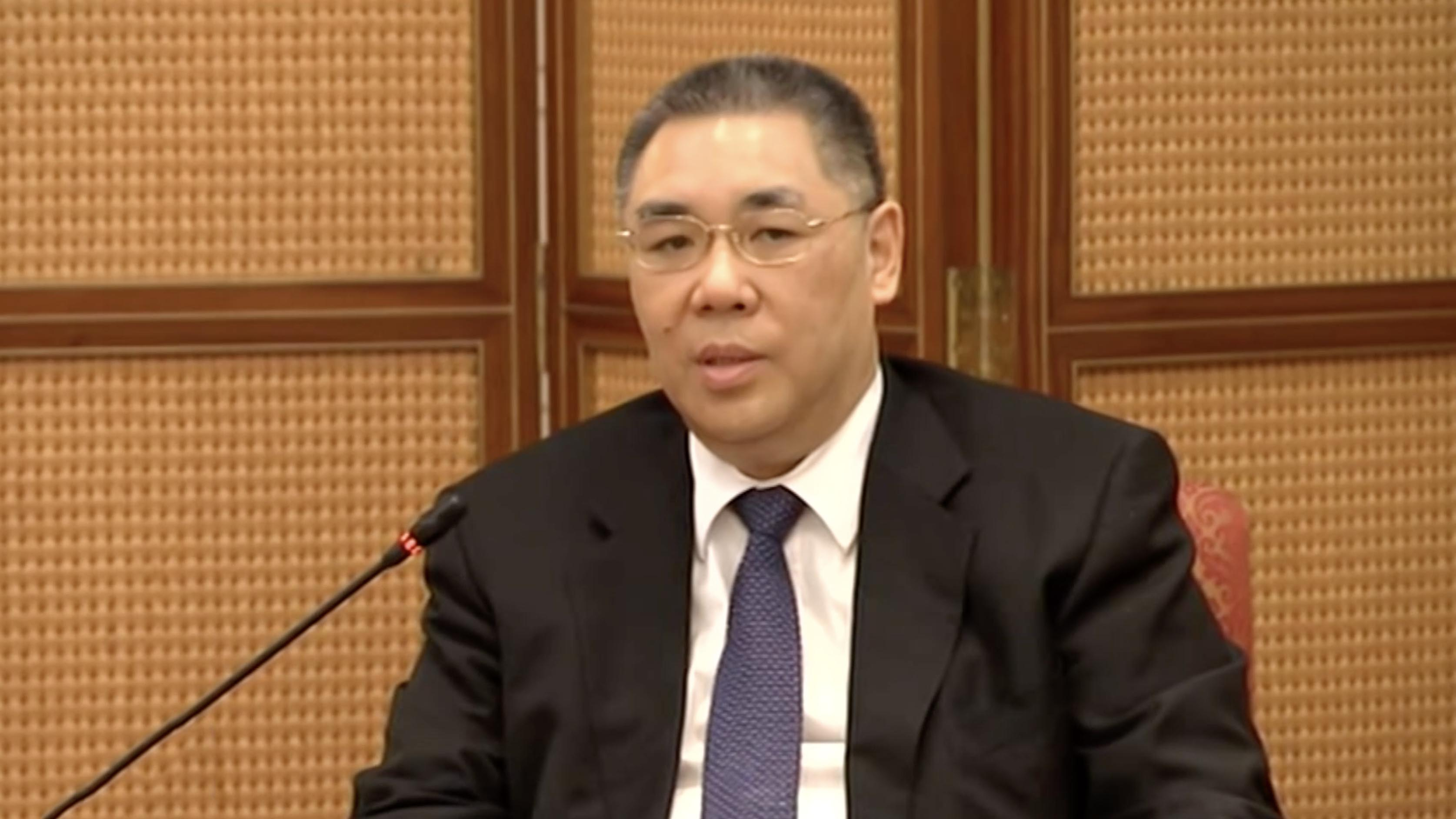01:59

Chief Executive of the Macao Special Administrative Region (SAR) Chui Sai On said in a recent interview with China Media Group (CMG) that Macao should be prepared to actively participate in the Guangdong-Hong Kong-Macao Greater Bay Area.
Read more:
20 years for Macao: 'One Country, Two Systems' a guarantee for social development and prosperity
Chui Sai On hails success of 'One Country, Two Systems' in Macao
Chinese authorities in February 2019 unveiled the outline development plan for the Greater Bay Area, aiming to develop the region into a role model of high-quality development.
The Greater Bay Area consists of SARs of Hong Kong and Macao and nine cities in Guangdong Province – Guangzhou, Shenzhen, Zhuhai, Foshan, Huizhou, Dongguan, Zhongshan, Jiangmen and Zhaoqing.
Chui said he hopes young people can go to the area and learn more about the region.
"It is also very important that the SAR government should help young people with financial and professional support so that they can be integrated into the development of the Greater Bay Area," said Chui.
"In the long run, I believe that the Greater Bay Area will be a world-class bay area. We will do our best to integrate into the development of the project," he added.
In the past two decades, Macao has strictly abided by China's Constitution and the Basic Law of the Macao SAR, and pursued the policy of "One Country, Two Systems" and "Macao people governing Macao" with a high degree of autonomy, said the chief executive.
"We aim to build Macao a world tourism center and a business cooperation platform between China and Portuguese-speaking countries. Macao actively participates in the building of the Belt and Road and we aim to develop a diversified economy," said the chief executive.
Macao has enjoyed its fastest and best development period in history since its return to the motherland 20 years ago and the performance of various macroeconomic indicators has been outstanding, Chui pointed out.
Macao's GDP surged from 51.9 billion patacas (6.44 billion U.S. dollars) in 1999 to 444.7 billion patacas in 2018. At the end of 2018, Macao's accumulated fiscal surplus reached 505.6 billion patacas, an increase of 193 times over 1999. Local residents are fully employed and the unemployment rate dropped from 6.3 percent at the beginning of Macao's return to 1.8 percent in 2018, Chui remarked.
He said the SAR government also values the improvement of people's livelihood, especially in areas such as education, medicine and disaster prevention and reduction.